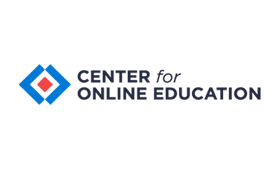Trends I'm Following this Month
the open education movement is going strong
Open Education Week is an annual event coordinated by the Open Education Consortium. The goal is to “raise awareness about the movement and its impact on teaching and learning worldwide.” I have incorporated open textbooks in my online courses, and used open education resources (OER) as supplemental materials when I was a student. While this movement is not new, it’s still relevant. Find out more about how open resources can affect your classes.
Episode 11 of the Teaching Online Podcast, from University of Central Florida, explores the benefits and challenges of open textbooks. Many, if not most, college courses require a textbook of some kind, which increases total costs for students. What if textbooks were eliminated or replaced with free, open options? That’s just what the University of Maryland University College is doing through an initiative that started last fall. An on-air interview with UMUC’s Vice Provost, revealed early success with the program. My own experience with using an open, online textbook has been phenomenal, but as hosts Kelvin Thompson and Tom Cavanaugh point out, finding the right fit of open materials and your course/student needs continues to be a challenge.
From OER and MOOCs to online pedagogy and open access tools, educators publishers and others are sharing their work with Creative Commons and other open licenses. Would you consider sharing your work? One of the latest trends in open education is in graduate school. I’m seeing more instances of doctoral dissertation defenses being either live streamed online, even allowing questions from the viewing audience, or live tweeting of the presentation by someone onsite.
Online Education in the News
Conference Updates
#sxswedu – SXSW Education Conference, March 7-10
- Virtual reality as the future of education is not about “watching,” but “immersion” and “presence” instead, as learners interact in a simulated environment. We’ve just begun to explore the possibilities here, that have the potential to change not only the way we study, but also how we work, travel, and communicate.
- Where is the focus on practical skills? More hands-on learning needed in a wider range of career fields and occupational trades. There’s a loud call for job-related preparation at all levels of education, including high school and college.
- Success in school isn’t all about academic readiness. Are students emotionally and socially ready to succeed in college?strong> Each student brings a unique set of characteristics, expectations and abilities to the classroom, whether it’s on campus or online. And there’s more to supporting their work than making sure they are ready for the academic course work.
- Students and teachers need to be empowered to do their best work. There are too many limits, and support is lacking all around. Where do you currently encounter roadblocks to online teaching and learning?
- What’s really innovative? Get beyond what people are saying and look at what they are doing. Conferences like this one are great ways to find out about projects and look for examples to follow. Explore programs online and reach out to presenters, even if you can’t attend in person.
A SXSW Playlist for Higher Education
Check out these conference take-aways from Eduventures.
Don't Miss!
National Library Week (April 10-16)
Sponsored by the American Library Association, this annual event celebrates all libraries and librarians. Look for special programs at your school and in your community focused on this year’s theme, “Libraries Transform.” How has a library or library access transformed your education or career? How are libraries transforming our access to information and services that help us keep learning?
National Financial Literacy Month (April)
The White House launched National Financial Literacy Month in 2003. Since that time, sites like MyMoney.gov and ConsumerFinance.gov have expanded their resources. Managing your personal budget and student debt are part of your overall financial wellness. What can you do to improve your knowledge and skills next month?
Academic Calendar Deadlines
Spring Final Exams
If you are taking courses in a traditional semester format, it’s almost time for final exams. Are you ready? If you are procrastinating, the time to start your study planning is now.
Register for Summer Classes
Every school provides it’s own process for this, which includes deadlines. Are you planning to take summer classes? Take a close look at the course schedule to determine which formats are available (i.e., on campus, hybrid/blended, online), and how much they will cost. Some schools have different tuition schedules during the summer, as well as overlapping terms with different lengths (e.g., 5-, 8- 10-weeks). Pay close attention to your registration details so there won’t be any surprises on the first day of classes.
